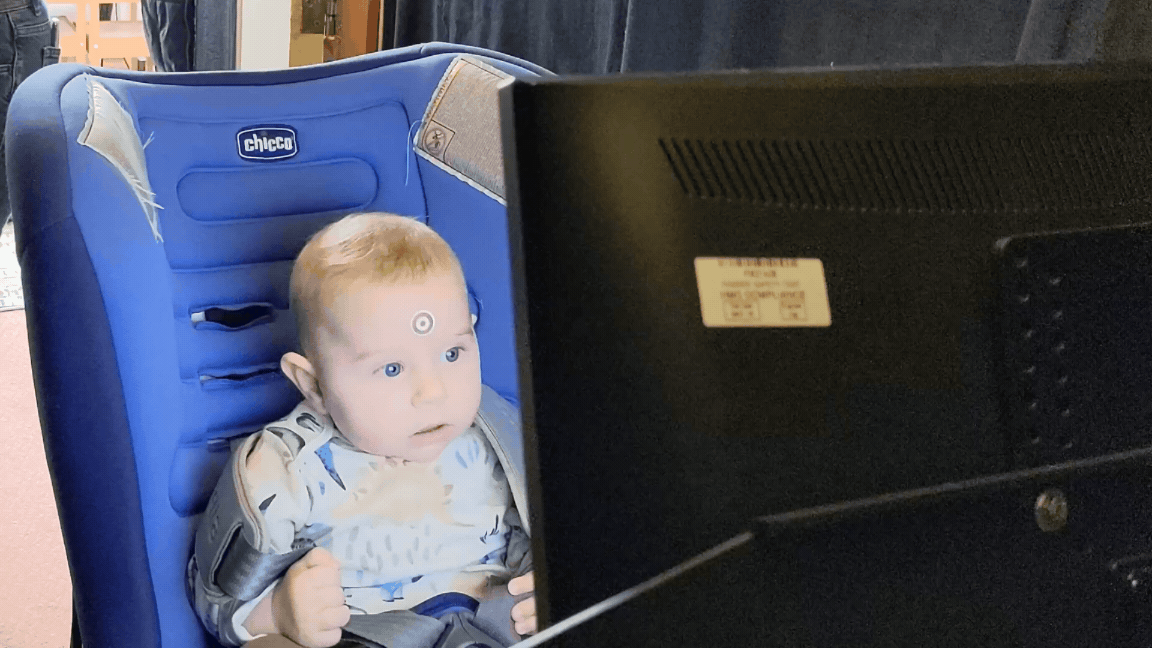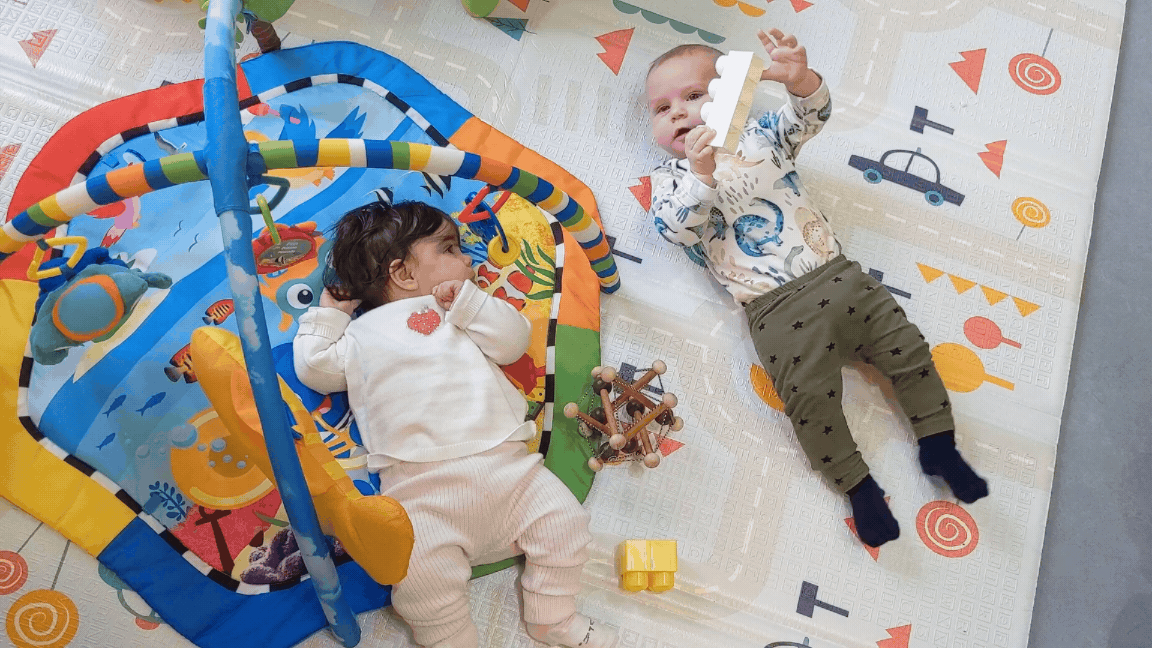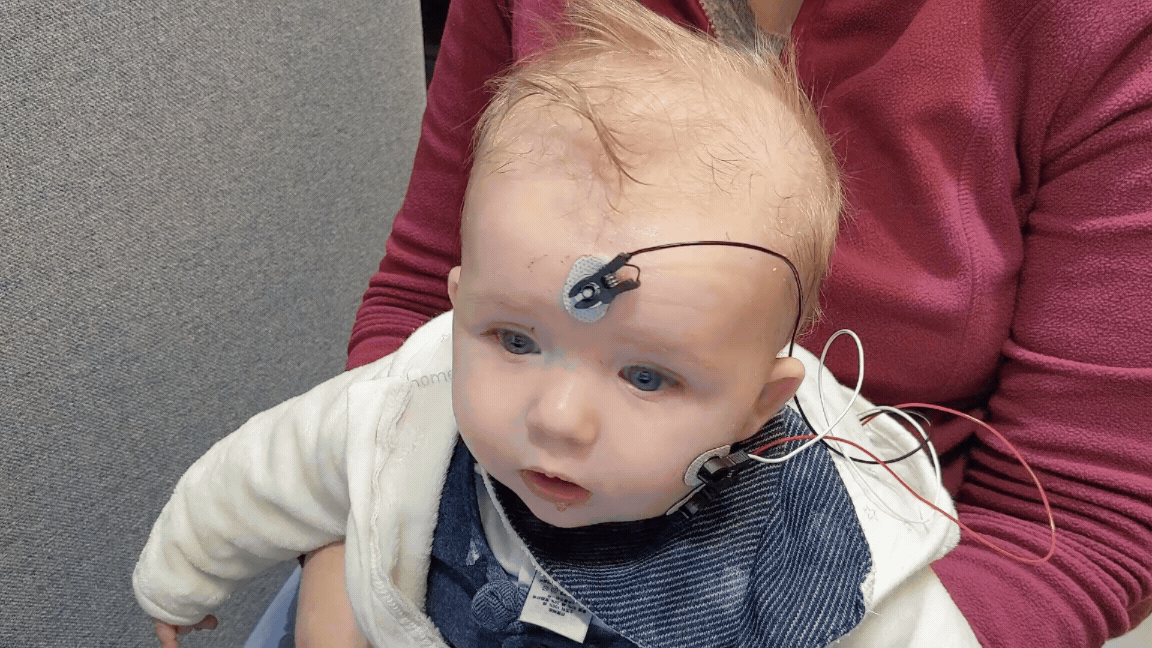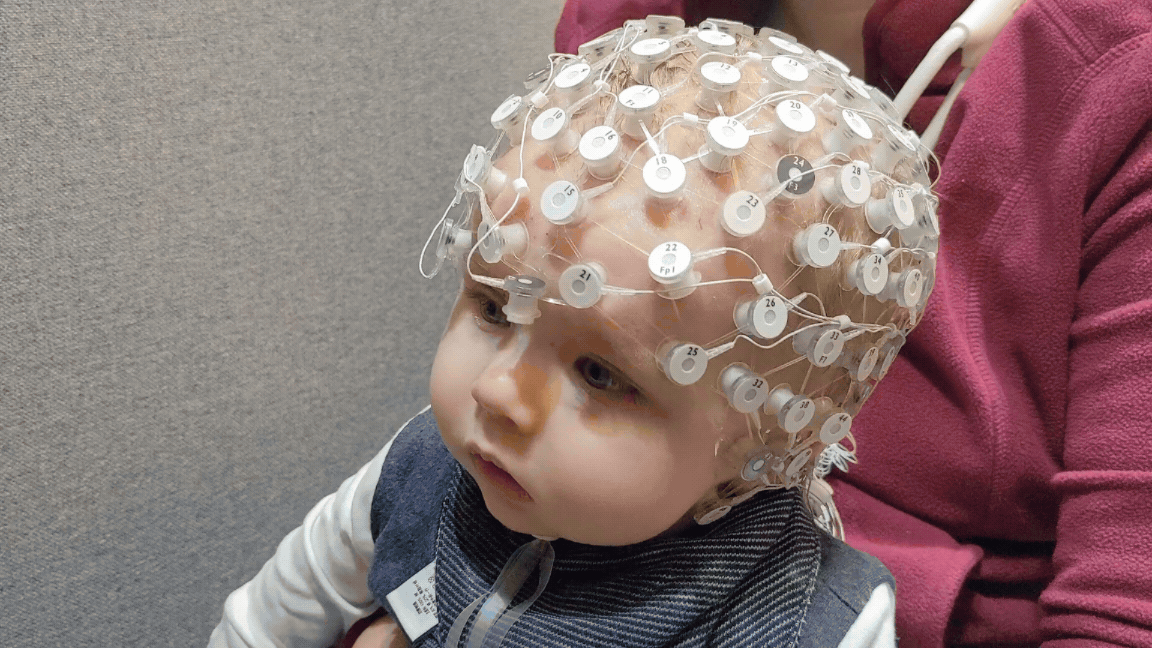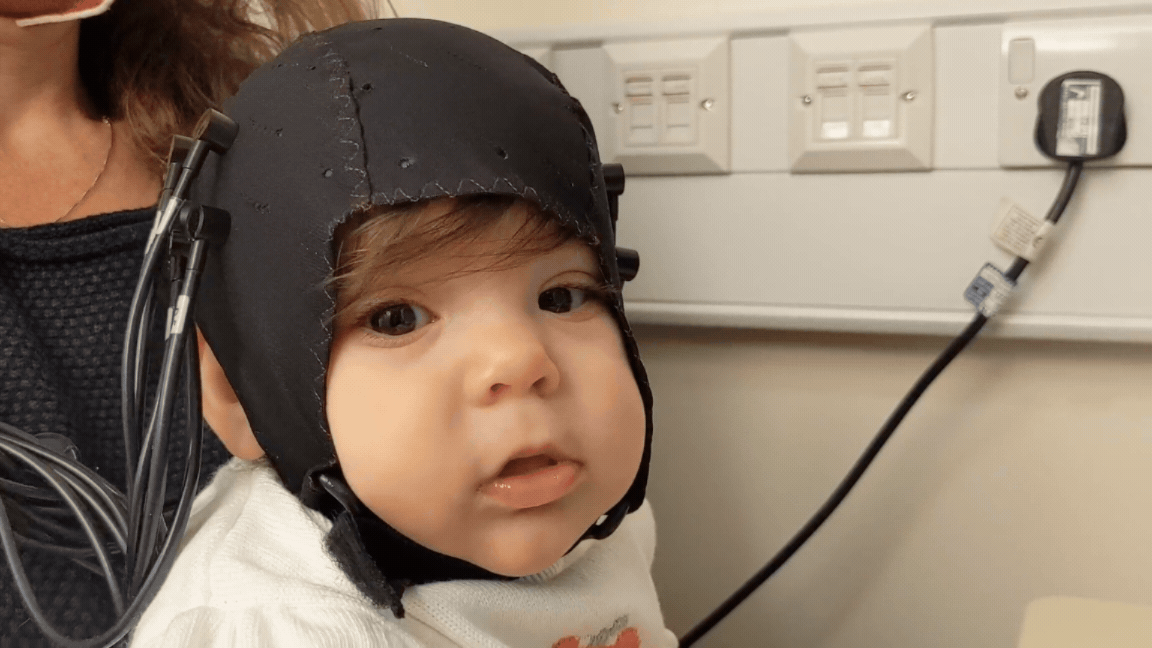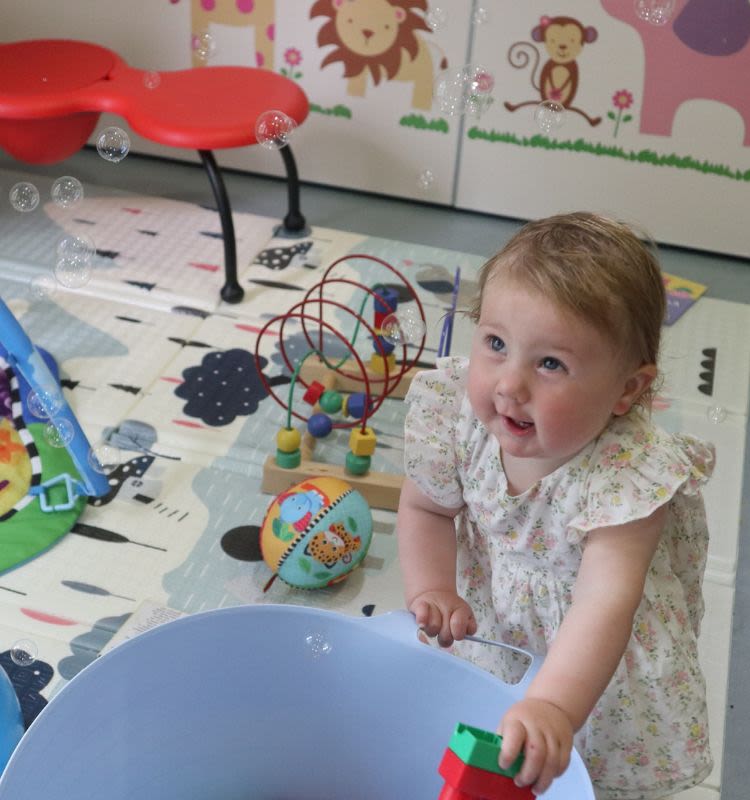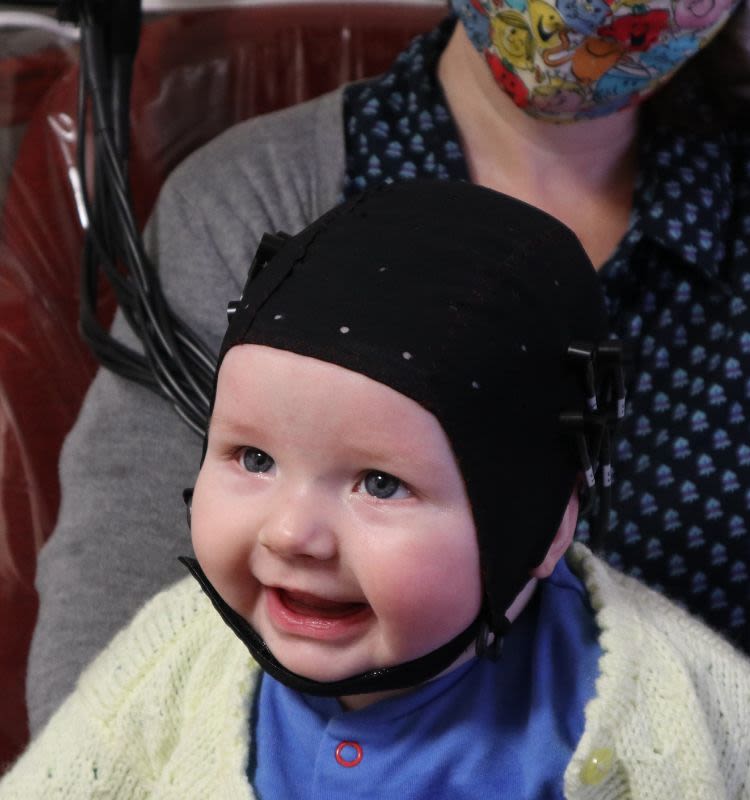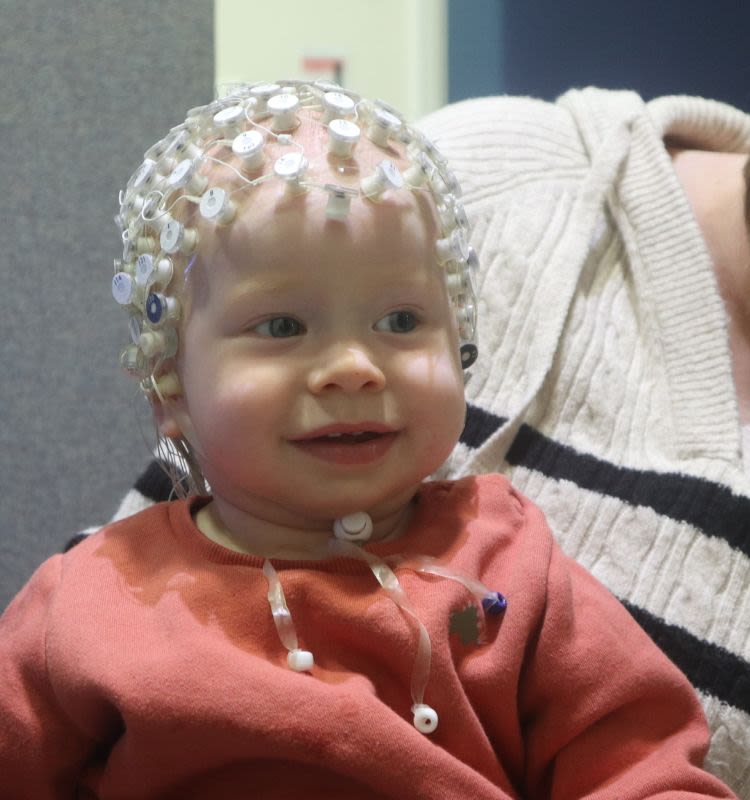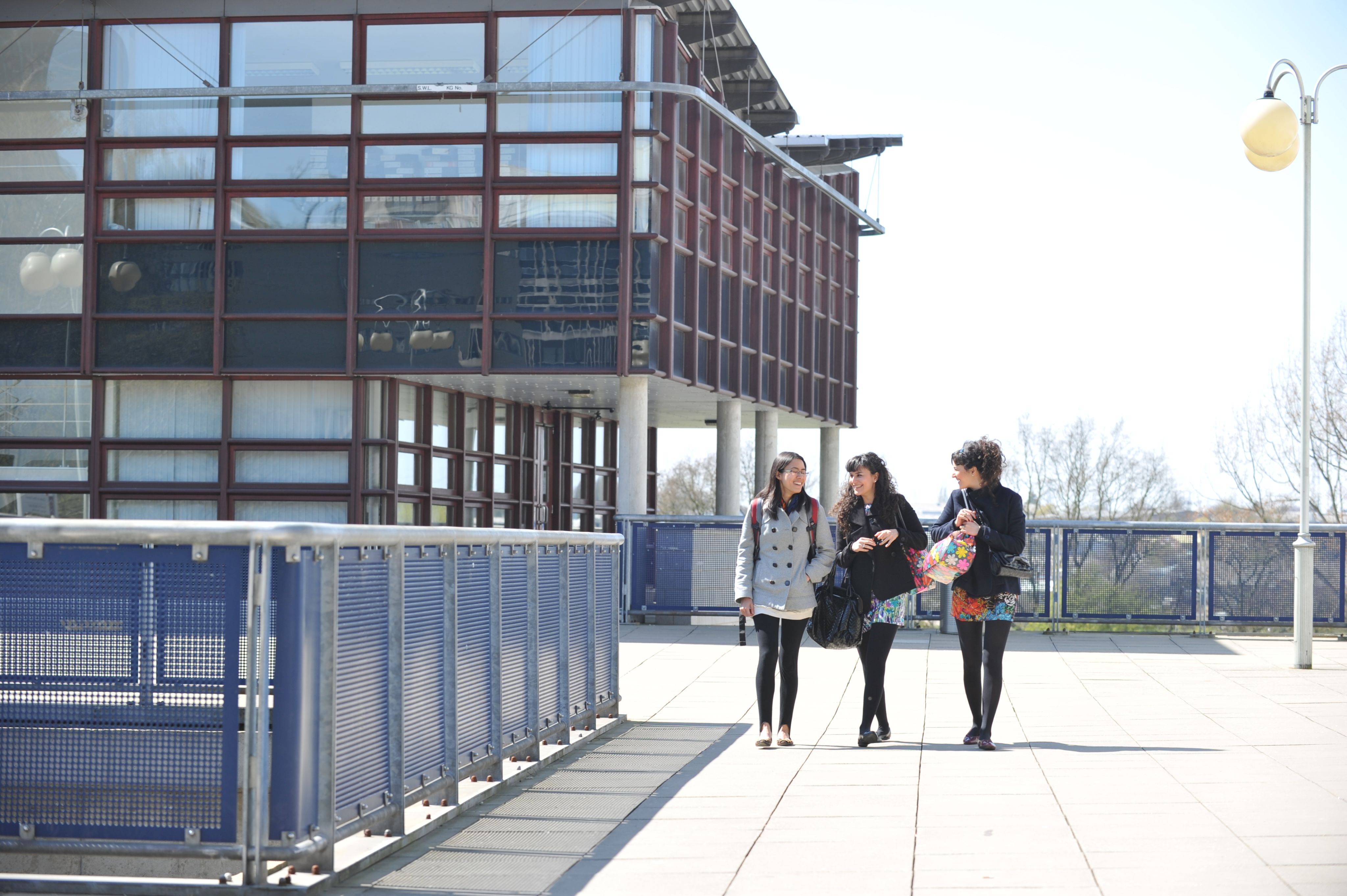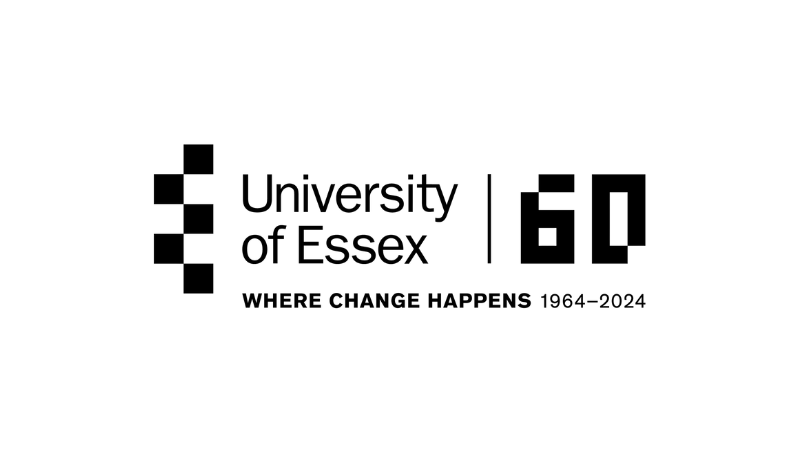Little Minds, Big Discoveries
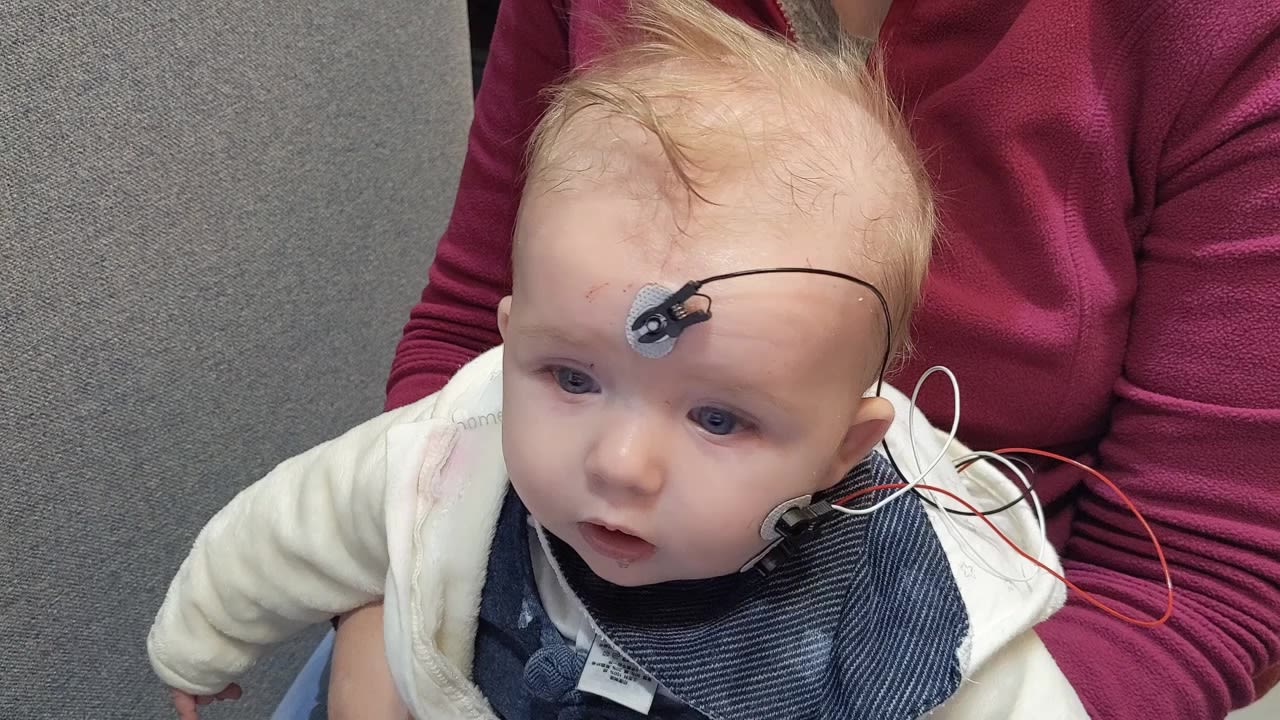
No one remembers being a baby, and they can’t tell us what they’re thinking, so how do we know what is going on inside their heads?
At the Essex Babylab, researchers use baby-friendly techniques to explore how babies understand their bodies, their world, and the people around them.
Their discoveries are helping to shape better support for children’s learning, communication, and wellbeing.

Inside the Essex Babylab
At the Essex Babylab, little scientists-in-the-making help our Psychologists and Linguists explore big questions.
They discover how babies learn new words, how they learn to copy others, how they come to understand their bodies and the signals it gives them.
The researchers use baby-friendly methods to study how babies think, experience, and interact with the world - without needing them to speak or follow instructions.
They use:
Eye tracking - This helps researchers measure where a baby is looking using invisible infrared light. This reveals what babies understand - like whether they can match spoken words to pictures.
Behavioural observation - Where the team watch babies play with their caregivers. This allows the researchers to learn how they communicate, copy others, and develop social skills.
Surface EMG (electromyography) - scientists can measure tiny electrical signals from facial muscles. This technique can detect subtle facial mimicry, even when it's not visible to the naked eye.
EEG (electroencephalography) - this involves placing a soft, sponge-filled cap on the baby’s head to record the brain’s electrical activity. This helps scientists understand how the brain responds during activities like reaching for toys.
fNIRS (functional near-infrared spectroscopy) - this measures blood flow in the brain with light-sensitive sensors in a cap. It reveals which brain areas are active during activities like looking at faces.
Together, these tools allow the researchers to peek inside ’ developing minds to understand how humans begin to engage with the world.
And for families, it’s a unique chance to glimpse their child’s thinking in action.
The team is currently exploring how babies build an internal sense of their own bodies - a process called body representation.
By combining what they see, feel, and sense through movement, babies begin to understand where their body is in space and how it moves.
This foundation is important not only for physical coordination, but also for later skills like recognising themselves in a mirror and developing a sense of self.
This study is part of a major research project looking at how early body awareness develops in infancy.
It’s cutting-edge science, powered by play.
Take a deep dive into the Babylab's work in the podcast below
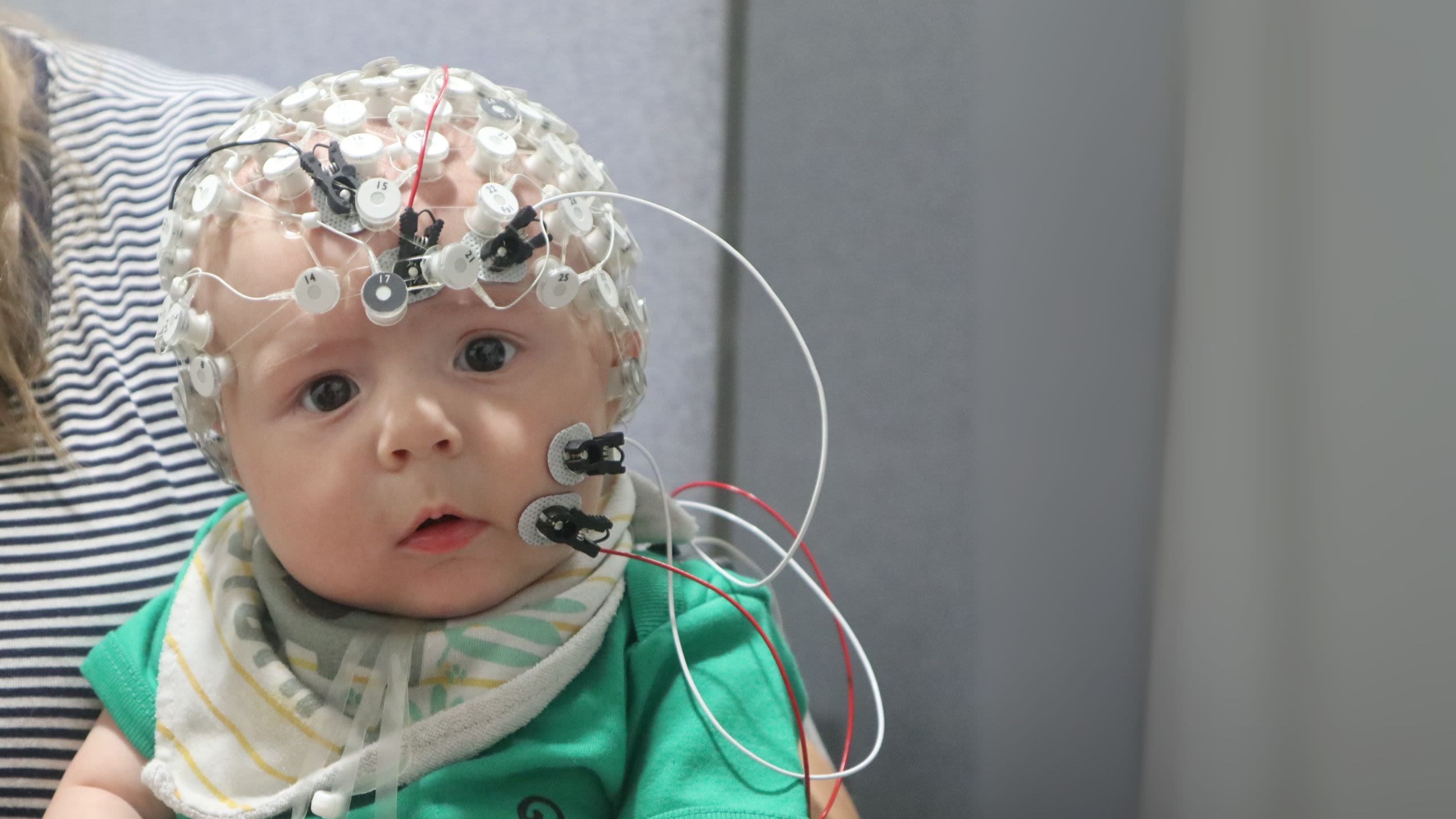
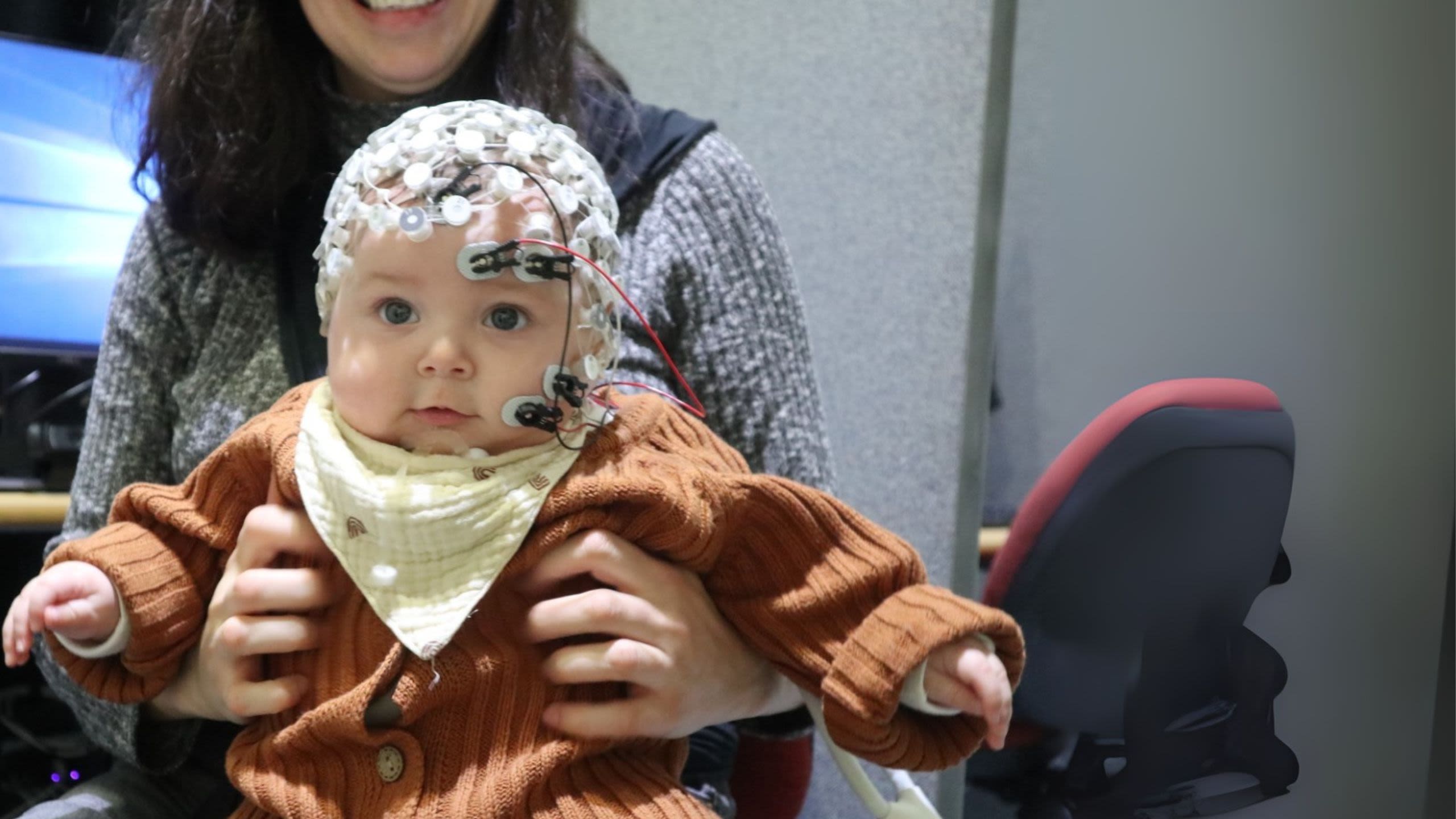
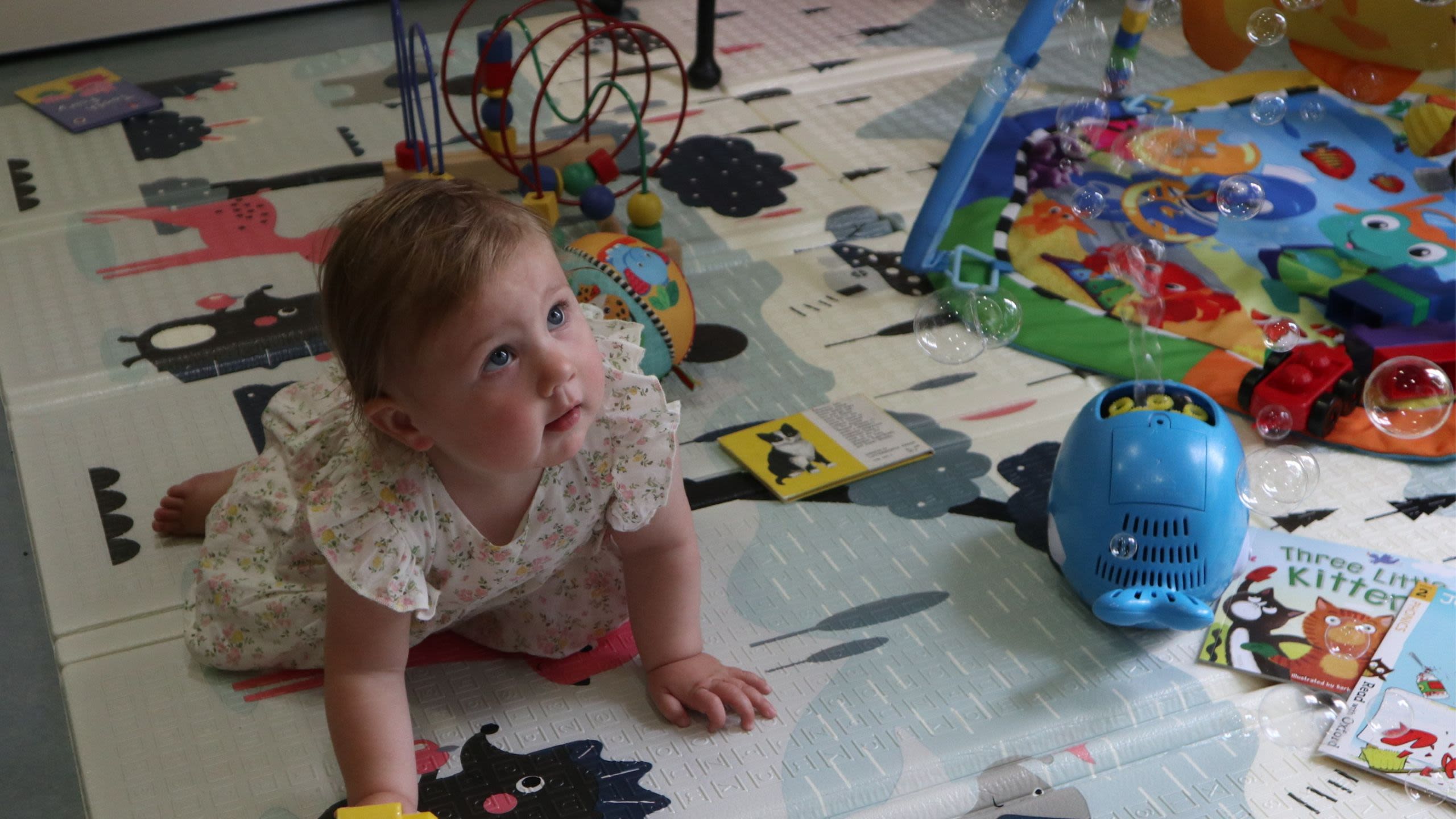
Building a
COMMUNITY
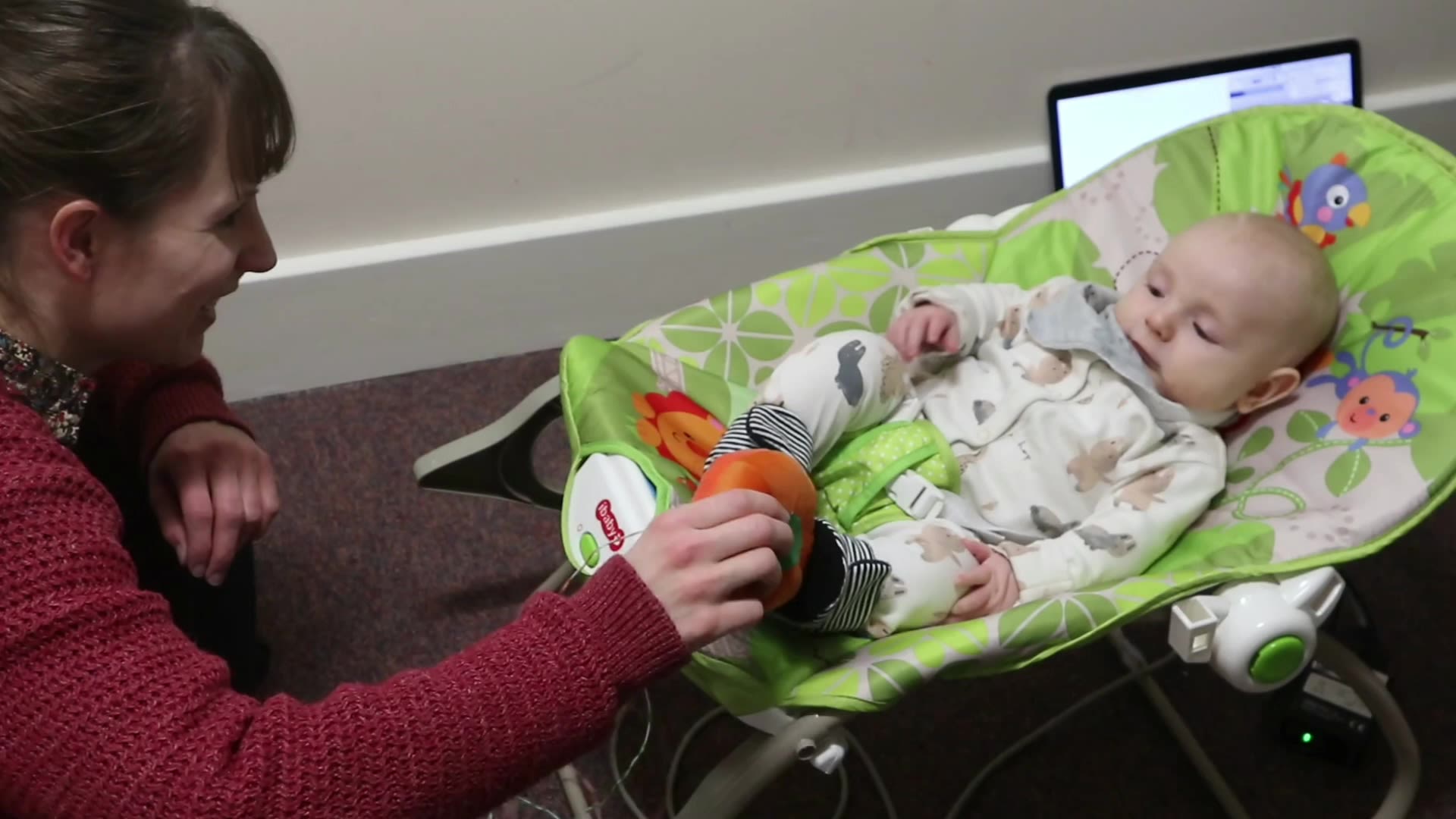
The Babylab is more than just a place for research – it’s a friendly, welcoming part of the Colchester community.
While researchers study how babies develop and learn, they’re also out and about meeting families across Essex.
You might spot them at local playgroups, nurseries, or community events, sharing what they have learned and bringing science to parents.
The team also hosts regular coffee mornings on campus, where parents can meet, chat, and hear from experts about child development - all while their little ones play.
These are all advertised on Facebook
And Instagram
The work conducted at the Essex Baby Lab contributes to our fundamental understanding of human development, with implications that extend far beyond academic research.
By studying how babies learn, perceive social cues, and form relationships, researchers are building knowledge that can inform parenting practices, educational approaches, and interventions for children who may need additional support.
We can’t do this research without participants, so if you would like to participate with your little ones please sign up below
"It is always a privilege to share our expertise directly with parents to help give children the best possible start in life."
Dr Maria Laura Filippetti
Department of Psychology researcher and senior lecturer
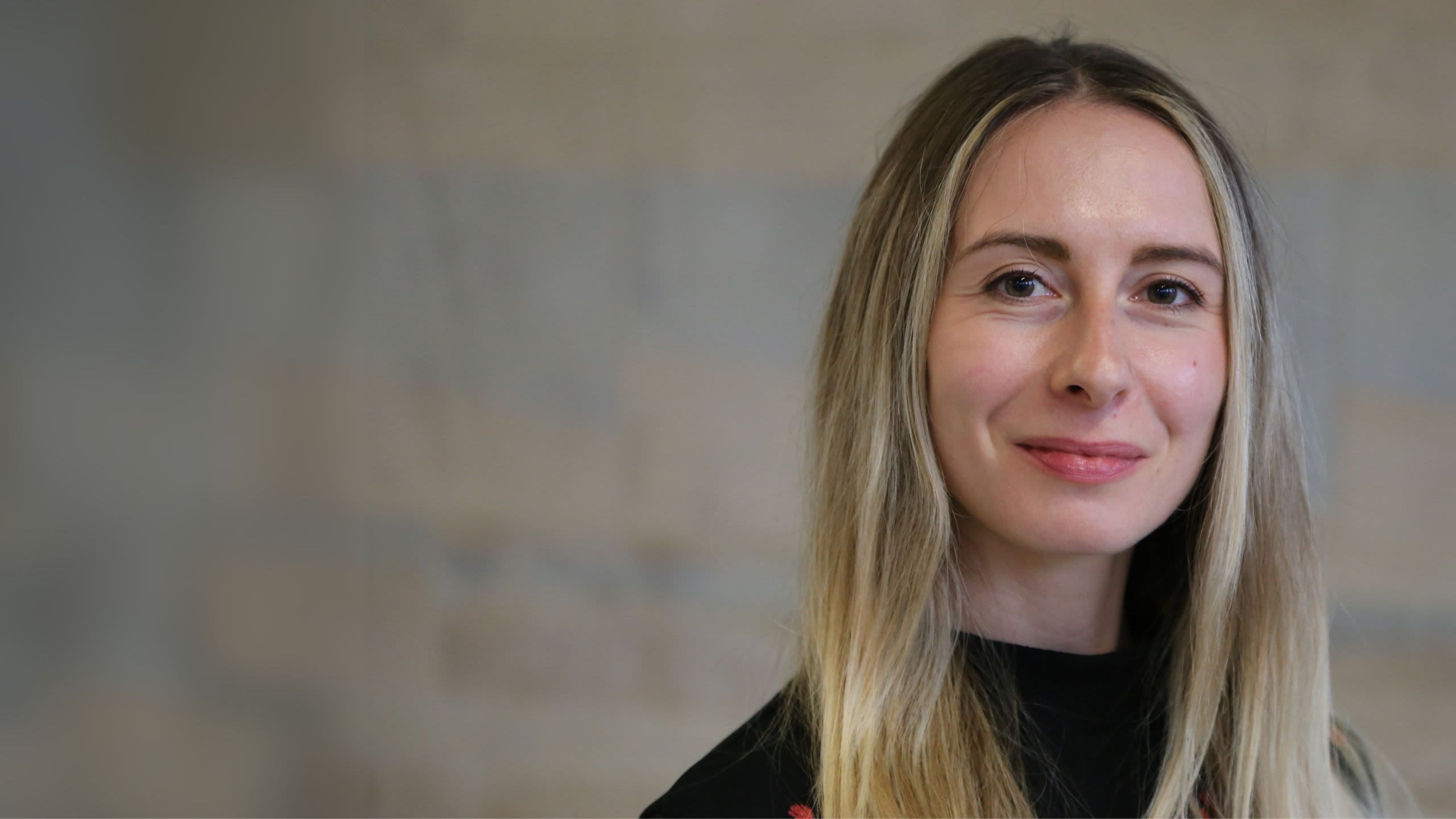

Find out more
Learn more about the Department of Psychology
Find out what courses are on offer
Sixty Stories
We’re celebrating 60 years of making change happen. 60 years of boldness and bravery from our students past and present. 60 years of creating change.

